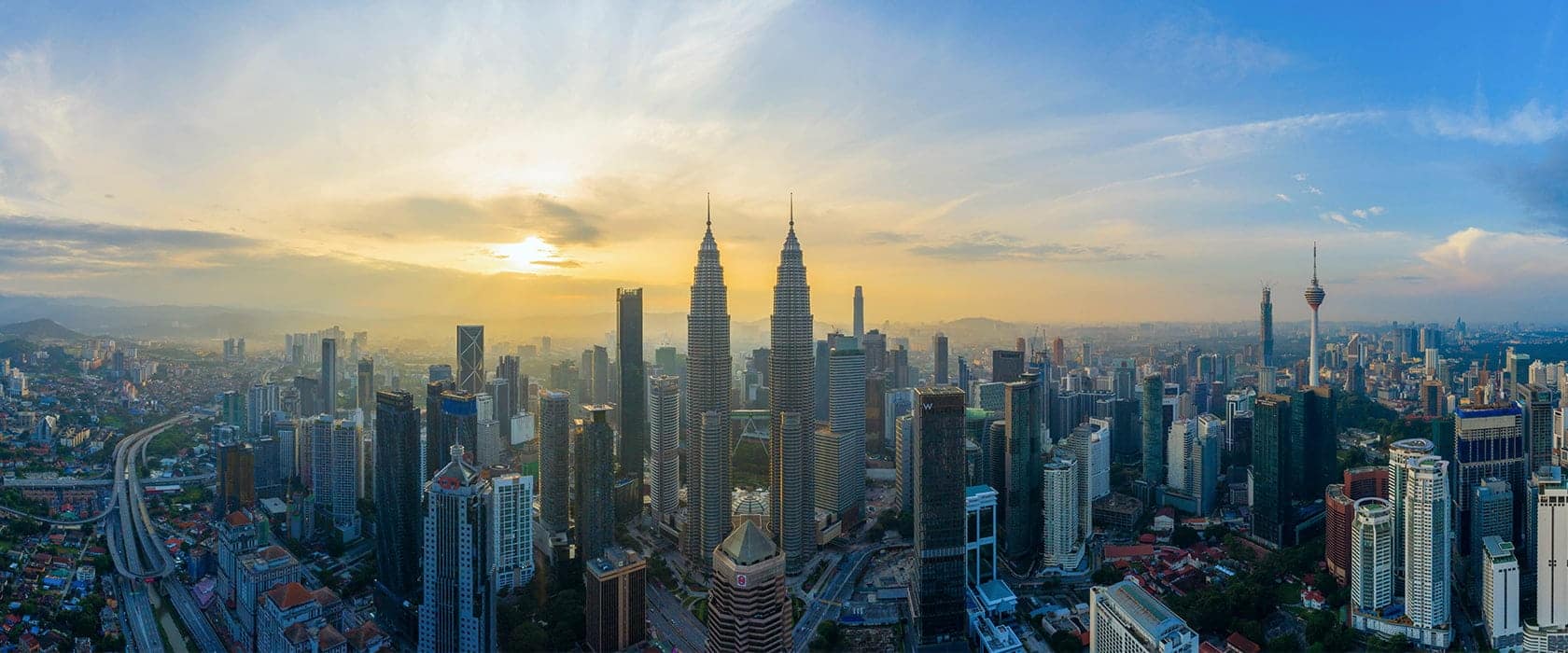-
Popular search terms
Get the Ultimate Guide
to Applying for an MBA

Download for free
Download you MBA Admissions Guide
Get the Ultimate Guide
to Applying for an MBA

Download for free
Download you MBA Admissions Guide

Malaysia’s vast and varied territory encompasses two distinct regions separated by the South China Sea: Peninsular Malaysia and East Malaysia. If you do a business degree in Malaysia, you’re more likely to find yourself in the developed Peninsular Malaysia, which contains the capital Kuala Lumpur and most of the biggest cities in the country. East Malaysia is located on the island of Borneo and is more sparsely populated with a greater portion of green spaces. Since gaining independence from British colonial rule, Malaysia has enjoyed consistent economic growth to transform itself into one of Asia’s most modern, prosperous, and forward-thinking nations.
Affordable tuition fees, a majority of English-taught programs, and a burgeoning reputation for higher education all combine to make Malaysia an extremely popular international study destination. Just under 130,000 international students chose to study in Malaysia in 2019, and the national government is targeting 250,000 international students by 2025. The oldest and most prestigious university in the country is Universiti Malaya (UM), which has risen from #114 in the QS World University Rankings in 2018 to #65 in the 2022 rankings. The growing prestige of Malaysia is evidenced in the fact that MIT, one of the top universities in the world, recently helped to establish the Asia School of Business in Kuala Lumpur.

All international students must apply for a student visa at the Malaysian Embassy or Consulate in their country, before arriving in Malaysia. Applying for a Malaysian student visa is quick and easy. The whole process from application to receiving your visa usually takes between four and six weeks. The visa is valid for 12 months and must be renewed if you plan to study for longer than a year. Visa applications cost RM60 (US$13.70).
If you would like to work in Malaysia after graduation, you must find an employer willing to sponsor your work permit so that you can legally work in the country. To protect the local workforce, Malaysian citizens are often given first priority in any job application process. However, in certain sectors and most global companies, international graduates are given equal preference.
Opening a Malaysian bank account is the most convenient option to manage your day-to-day finances in Malaysia. Paying rent and receiving your salary will be hassle-free. You will also be able to receive money from abroad.
As an international student, you can open a bank account once you arrive in Malaysia. To open a bank account, you’ll need a valid passport, a valid student visa, and proof of enrollment from your university. Major banks in Malaysia include Maybank, CIMB, Public Bank Berhad (PBE), RHB Bank, and HSBC Bank Malaysia. You can expect to pay a service charge between RM5-15 (US$1.14-3.42) biannually.
The Ministry of Higher Education Malaysia (MOHE) requires all international students to have a valid medical insurance policy throughout their period of study in Malaysia. Proof of medical insurance coverage is required to obtain your student visa. In most cases, your university will organize your health insurance. The university files the paperwork and international students are insured, as part of their study program, from the day they arrive in Malaysia. Your insurance will typically cover doctor visits, emergency hospital treatments, emergency ambulance costs, and prescription medicine.
Health insurance in Malaysia costs between RM100-500 (US$22.83-114.19) per year. Fortunately, in most cases, once you accept your admission offer, the admissions office will be in touch with you regarding the necessary information about health insurance.
Most Malaysian universities will provide some kind of on-campus and off-campus accommodation for international students. On-campus facilities usually consist of halls of residence or student hostels, while off-campus accommodations mainly consist of school-owned private apartments or houses. Student housing typically costs between RM400-1200 (US$91-274), depending on the style and location.
It’s also common for international students to rent private housing. You can generally find student housing areas located close to your university, where you will be able to find a room in a shared student house or a studio apartment. Rent for a single room is around RD5000 (US$1,142) for three months (rent is usually paid in advance every three months).
Malaysia has an effective and affordable network of public transportation. If you are on a budget, taking the bus or metro is the easiest and cheapest way to travel within most major cities. The cost per metro ride is usually less than RM4 (US$0.91). Taxis are not frequently used in Malaysia. However, if you want to avoid crowds and are ready to pay extra, you can hail a cab. The ideal taxi fare per kilometer is RM3 (US$0.68).
In recent years, the Malaysian government has made efforts to encourage bicycles as a mode of transportation. Look out for designated, blue-painted tracks for cyclists. You can rent a bike from a major supplier such as oBike, Ecocana, or Forest Trek Cycle, for RD35-300 (US$7.99-68.51) per day.
The Big Mac Index was invented by The Economist in 1986 as an informal way of measuring the purchasing power parity (PPP) between two currencies. The price of a Big Mac in Malaysia is RM9.99 (equivalent to US$2.28, EUR€2.12, and JP¥290). For US$50, you can buy 21 Big Macs.
A major advantage for international students who choose to study in Malaysia is the reasonable cost of living. The total expenditure for accommodation – either on-campus or off-campus – as well as daily expenses is very affordable. While actual costs of living will depend on several factors including lifestyle choice, you can live in relative comfort for RM2,000 (US$450) per month.